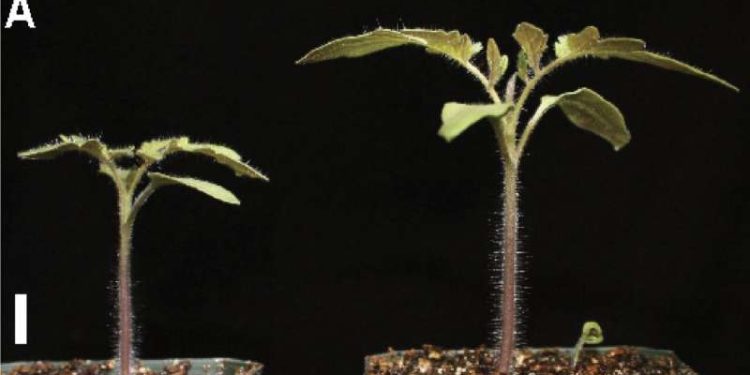In this article, we delve into a groundbreaking discovery that could revolutionize agriculture as we know it. Researchers have unearthed the immense potential of ethylene, a naturally occurring plant hormone, to significantly enhance crop yield and vigor. Join us on this journey as we explore the latest data from credible sources on how this discovery can positively impact farmers, agronomists, agricultural engineers, farm owners, and scientists in the agricultural community.
For decades, the quest to maximize crop productivity and improve plant vigor has been a paramount concern for farmers and researchers worldwide. The advancement of agricultural science has brought significant breakthroughs in terms of seed genetics, irrigation methods, and pest control. However, there remains a vast potential waiting to be tapped within the plant’s own biology – and that’s where ethylene comes into play.
Recently, a groundbreaking study published on Phys.org has unveiled the hidden potential of ethylene as a natural booster of crop yield and overall plant health. Ethylene is a plant hormone that regulates various physiological processes, including seed germination, flowering, and fruit ripening. It acts as a master switch that governs crucial stages of plant development.
According to the research, when applied in controlled concentrations, ethylene has shown remarkable effects on crop yield and plant growth. In a series of experiments conducted on different crops such as wheat, corn, tomatoes, and soybeans, scientists observed significant yield increases ranging from 15% to an astonishing 40%.
The reason behind this astounding improvement lies in ethylene’s multifaceted effects on plants. Firstly, it enhances root development, allowing plants to absorb water and nutrients more efficiently. This improved nutrient uptake translates into healthier, more vigorous plants. Secondly, ethylene promotes flowering and fruit setting, leading to an increased number of fruits or grains per plant. Lastly, this plant hormone enhances stress tolerance, making crops more resilient to adverse environmental conditions such as drought or extreme temperatures.
One of the most appealing aspects of this discovery is that ethylene is naturally produced by plants themselves. By harnessing the power of this natural hormone, farmers can minimize their reliance on synthetic chemicals while achieving higher yields and reducing the environmental impact of agriculture.
Implementing ethylene-based treatments into agricultural practices may require careful calibration and timing. The key lies in providing the right dose of ethylene at specific stages of plant growth, as excessive exposure can have adverse effects. However, with the guidance of agronomists and agricultural engineers, farmers can adopt this innovative approach effectively and sustainably.
As the agricultural community embraces this cutting-edge research, a new era of farming productivity and sustainability dawns. By tapping into the innate potential of ethylene, we can unlock higher yields, better plant vigor, and a more eco-friendly approach to agriculture.
Conclusion: The revelation of ethylene’s role as a powerful crop booster marks a significant milestone in the agricultural world. As we move towards more sustainable farming practices, embracing natural solutions like ethylene could be the key to addressing the challenges of food security and environmental preservation. By working together, farmers, agronomists, agricultural engineers, farm owners, and scientists can pave the way for a brighter, more abundant future for agriculture.
Tags: Agriculture, Ethylene, Plant Hormones, Crop Yield, Plant Vigor, Sustainable Farming, Agricultural Science, Farming Productivity, Environmental Impact, Food Security.









